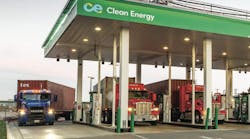The shortage of microchips, as well as shortages for other key truck components, has forced truck makers to reduce production. Dealers and fleets were put on allocation and few, if any, got all the new trucks they ordered. This occurred at a time when freight volumes were high, forcing fleets to run their older assets past the fleet’s typical trade cycles.
Most fleets set asset replacement cycles to coincide with the point when an asset begins to need maintenance more frequently. Keeping it running gets costly from a maintenance and repair standpoint.
See also: Full-service leasing offers flexibility and control
Whether an asset is in the shop for regularly scheduled preventive maintenance or because of a breakdown, smart fleets are conducting thorough preventive maintenance inspections (PMIs) to try to identify developing problems and fix them before they lead to an on-road breakdown.
Fleet managers should view the data from those PMIs as pure gold. It provides a wealth of information about the health of the fleet and allows fleet managers to spot wear trends across the fleet or in certain asset classes.
The data from PMIs can show how different brands of a component are performing. Is one brand of brake shoes holding up better than another? Is one type of tire lasting longer than another?
See also: The benefits of on-site maintenance
Looking at these types of problems and the mileage at which they are occurring can help the fleet manager determine if it makes sense to proactively replace a component at a certain mileage interval rather than waiting for it to fail. While there may still be some life left in the component, preventing one roadside breakdown can be worth the premature removal of a component across an asset class.
Roadside repairs are the most expensive and time-consuming type of repair. Waiting for the tow truck, getting towed to the service location, lining up in the service queue, and waiting for parts cost time and money—and also frustrates drivers. Given the severity of the driver shortage, keeping drivers happy must be a high priority for fleets.
The data collected from PMIs also can be used to inform future spec’ing decisions. Component specs can be modified based on how certain components performed in specific duty cycles, which should result in a more efficient vehicle spec going forward.
While older assets may need to be brought into the shop more frequently, the information gathered during the PMIs performed during those service events can be mined to improve asset uptime, curtail the number of roadside breakdowns, and better position the fleet for the future.
Jane Clark is vice president of member services for NationaLease. In this position, she is focused on managing the member services operation as well as working to strengthen member relationships, reduce member costs, and improve collaboration within the NationaLease supporting groups. Prior to joining NationaLease, Clark served as area vice president for Randstad, one of the nation’s largest recruitment agencies, and before that, she served in management posts with QPS Cos., Pro Staff, and Manpower Inc.



